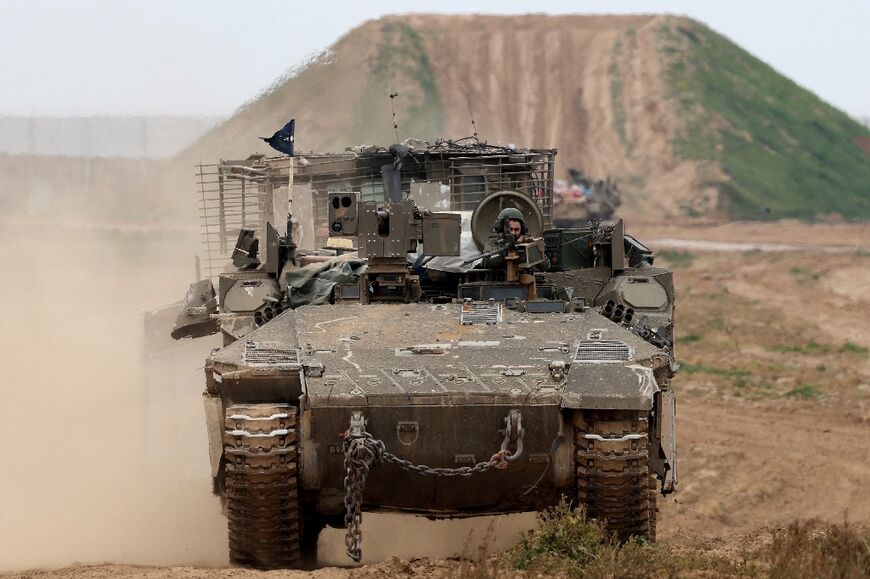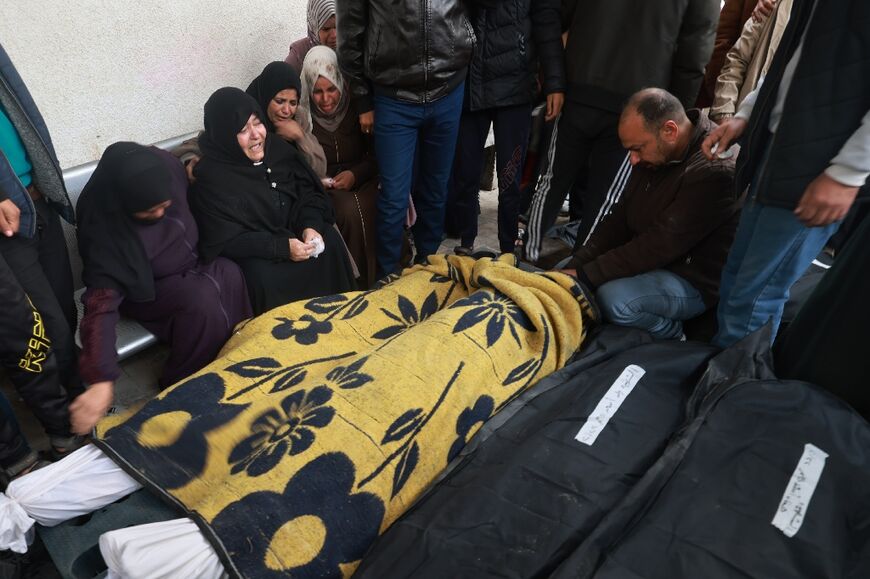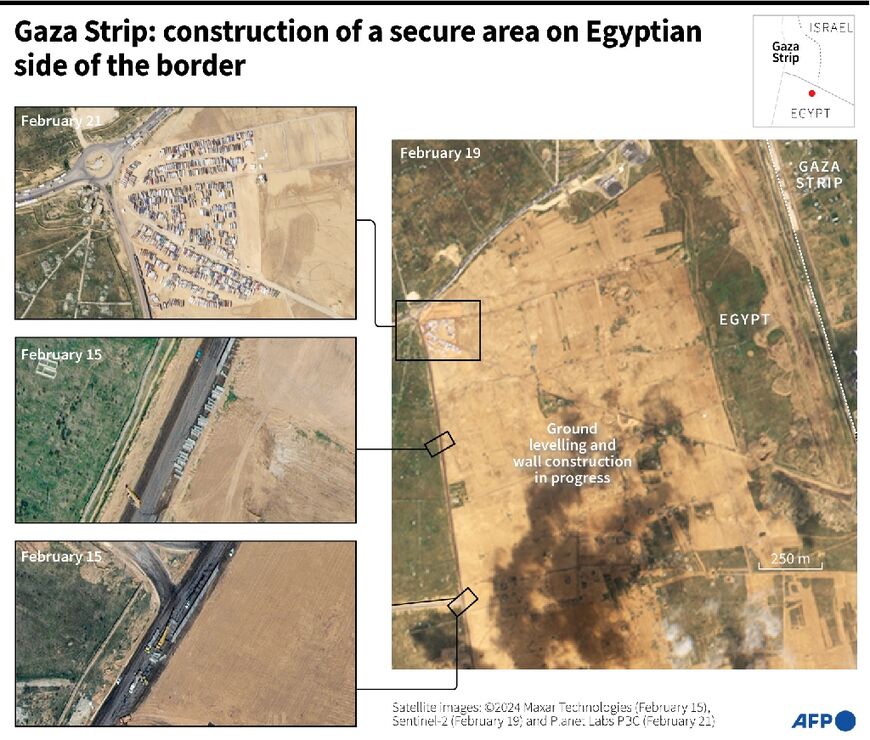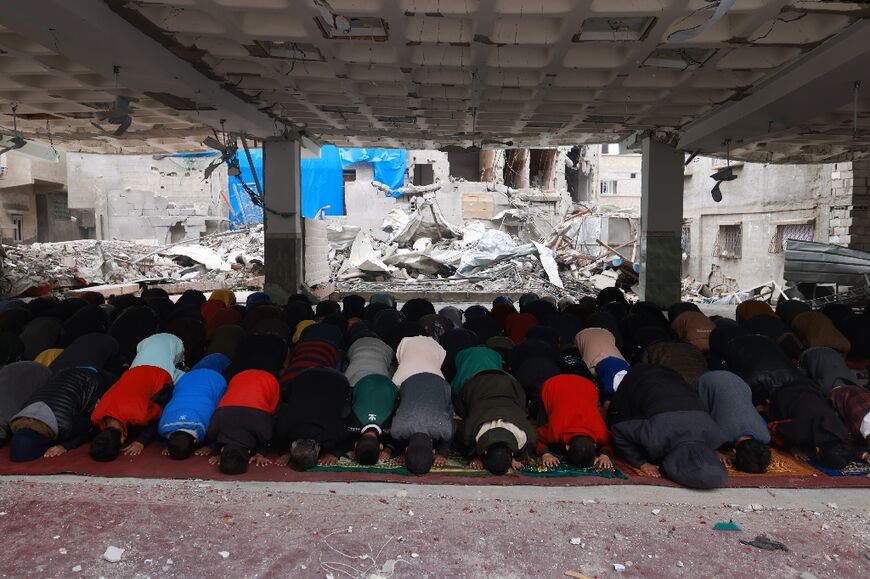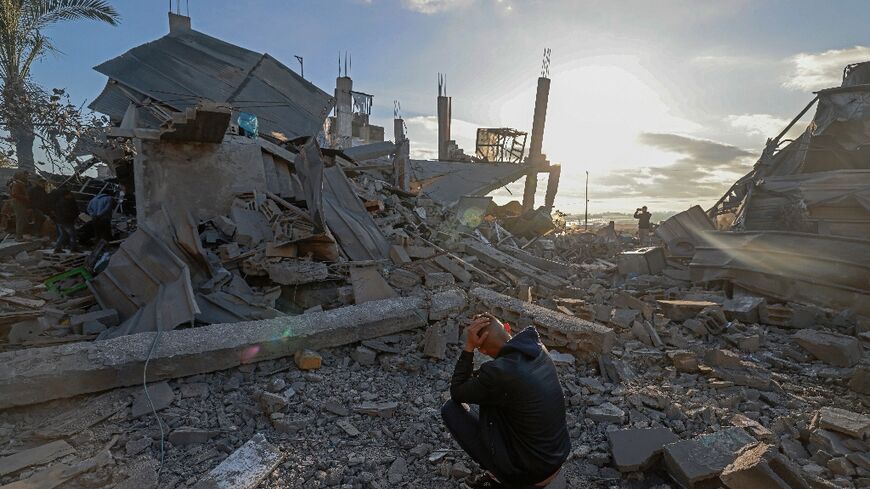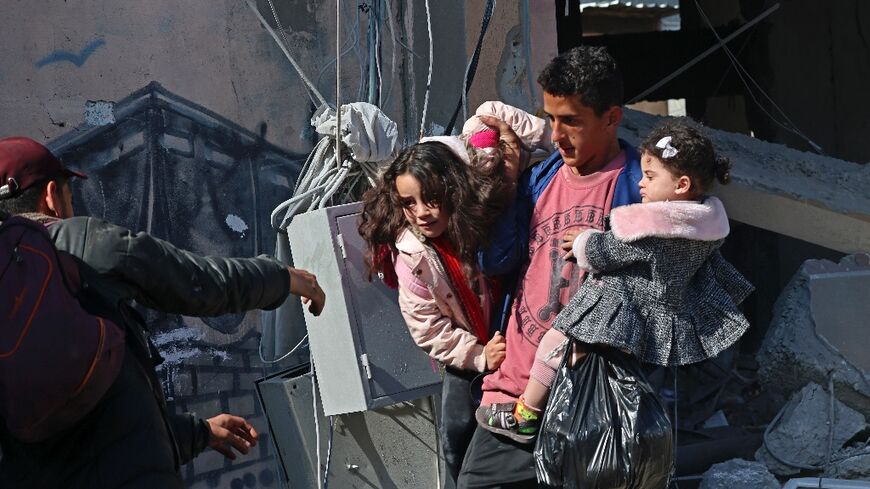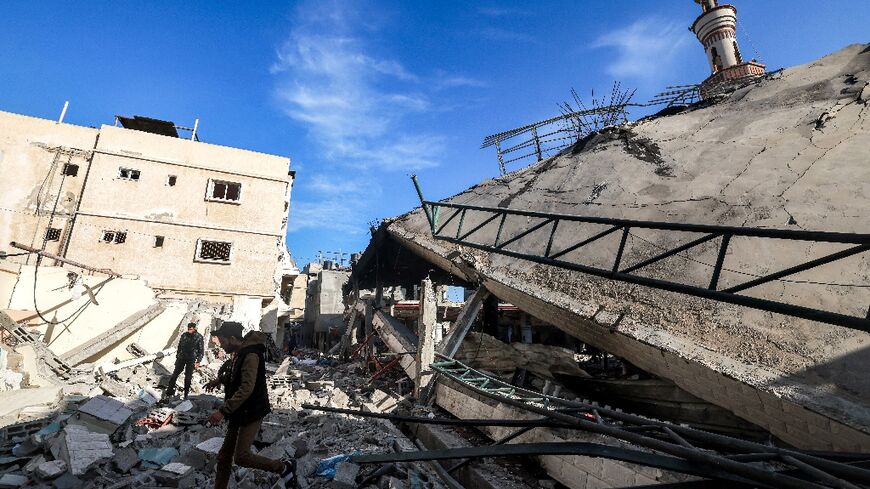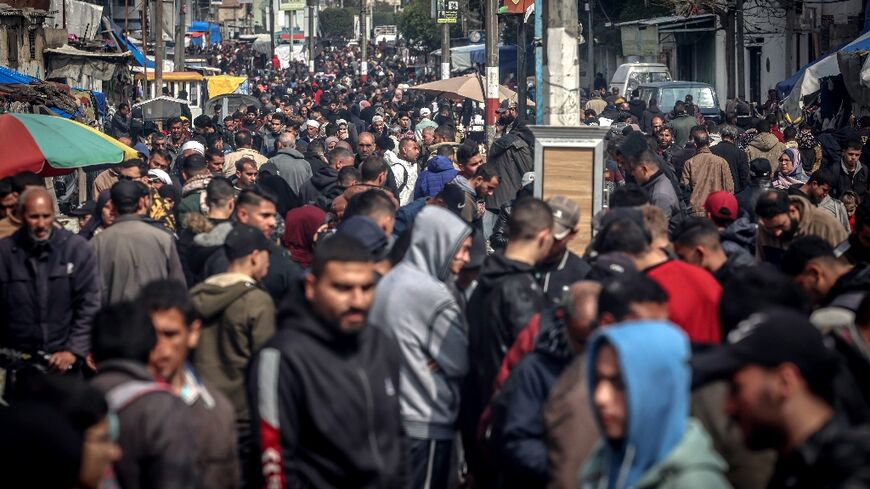Netanyahu plan for post-war Gaza draws US criticism

Israeli Prime Minister Benjamin Netanyahu has unveiled a plan for post-war Gaza that drew criticism from key ally the United States and was rejected by the Palestinian Authority and Hamas on Friday.
The new plan came after air strikes targeted homes in southern Gaza, and as an Israeli delegation arrived in Paris hoping to "unblock" truce discussions.
Netanyahu's plan envisages civil affairs in a post-war Gaza being run by Palestinian officials without links to Hamas.
It also lays out that, even after the war, the Israeli army would have "indefinite freedom" to operate throughout Gaza to prevent any resurgence of terror activity, according to the proposals.
The plan was swiftly rejected by the Palestinian Authority and drew criticism from the United States.
US National Security Council spokesman John Kirby said Washington had been "consistently clear with our Israeli counterparts" about what was needed in post-war Gaza.
"The Palestinian people should have a voice and a vote... through a revitalised Palestinian Authority," he said.
"We don't believe in a reduction of the size of Gaza... we don't want to see any forcible displacement of Palestinians outside Gaza and, of course, we don't want to see Gaza dominated or ruled or governed over by Hamas."
Asked about the plan during a visit to Argentina, US Secretary of State Antony Blinken said he would "reserve judgement" until seeing all the details, but said Washington was against any "reoccupation" of Gaza after the war.
Senior Hamas official Osama Hamdan dismissed Netanyahu's plan as unworkable.
"When it comes to the day after in the Gaza Strip, Netanyahu is presenting ideas which he knows fully well will never succeed," Hamdan told reporters in Beirut.
- Paris delegation -
As aid groups warned of an increasingly hopeless humanitarian situation in the Hamas-run territory, an Israeli delegation led by David Barnea, head of the Mossad intelligence agency, arrived in Paris for a fresh push for a deal to return the remaining hostages.
The war started after Hamas's unprecedented October 7 attack which resulted in the deaths of about 1,160 people in Israel, mostly civilians, according to an AFP tally of official figures.
Hamas militants also took hostages, 130 of whom remain in Gaza including 30 presumed dead, according to Israel.
Israel's retaliatory offensive has killed at least 29,514 people, mostly women and children, according to the latest count by Gaza's health ministry.
The toll has put pressure on US President Joe Biden to rein in its ally Israel -- which it provides with billions of dollars in military aid.
White House envoy Brett McGurk held talks this week with Israeli Defence Minister Yoav Gallant in Tel Aviv, after meeting with other mediators in Cairo who had met Hamas chief Ismail Haniyeh.
A Hamas source said the new plan proposes a six-week pause in the conflict and the release of between 200 and 300 Palestinian prisoners, in exchange for 35 to 40 hostages still held by Hamas.
Barnea and his US counterpart from the CIA helped broker a week-long truce in November that saw the release of 80 Israeli hostages in exchange for 240 Palestinian prisoners held in Israeli jails.
The US National Security Council spokesman told journalists that so far the discussions were "going well", while Israeli war cabinet member Benny Gantz spoke of "the first signs that indicate the possibility of progress".
- 'Dying of hunger' -
Israeli air strikes targeted homes in southern Gaza, witnesses said on Friday, with the health ministry saying more than 100 people were killed over the previous day.
Israeli bombardment destroyed one house and left a gaping hole in the earth east of Rafah, on the border with Egypt, where about 1.4 million Gazans have converged in a futile search to escape the fighting.
"We were sleeping in our house when we heard the sound of a missile," said Abdul Hamid Abu el-Enein. "We rushed to the site and found people martyred and injured" in the strike which "completely erased" the two-storey home.
Israel has threatened to send troops into Rafah, drawing international criticism.
An Israeli air strike Friday destroyed the home of well-known Palestinian comedian Mahmoud Zuaiter in Gaza, killing at least 23 people and injuring dozens more, according to the Gaza health ministry.
Most of the victims were women and children, it added.
More than four months of fighting and bombardment have flattened much of Gaza and pushed its population of around 2.4 million to the brink of famine as disease spreads, according to the United Nations.
"We have reached the point of extreme poverty and hunger," 62-year-old Zarifa Hamad, a displaced woman living in a camp in northern Gaza, told AFP. "Children are dying of hunger."
- 'Gross rights violations' -
A UN report said Friday that "gross human rights violations" had been committed by all parties in Israel and the Palestinian territories, and demanded accountability and justice to foster peace.
The war has also heightened tensions in the occupied West Bank, where the Israeli army said a Palestinian militant it killed in a drone strike late Thursday was "en route to carry out another shooting attack".
The strike came hours after three gunmen opened fire at queuing cars on a West Bank highway, killing one man.
Far-right Finance Minister Bezalel Smotrich announced that in response to the attack the government would submit plans for the construction of some 3,300 additional housing units in the nearby settlement of Maale Adumim.
The US National Security Council spokesman said he was "disappointed with the announcement", adding: "This administration maintains... our firm opposition to settlement expansion."
burs-rox/kir


